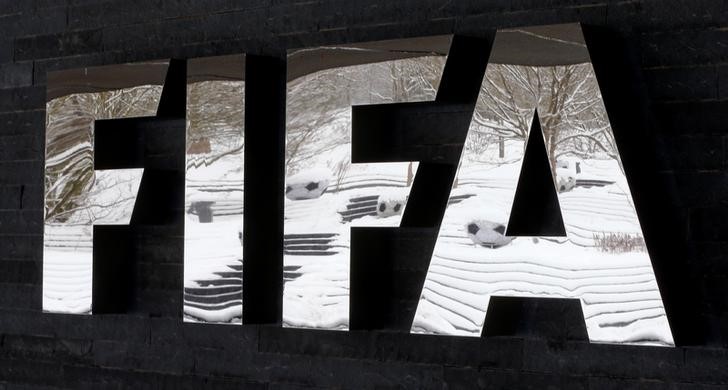By Mark Gleeson
CAPE TOWN (Reuters) - South African football was embroiled in another scandal on Monday when FIFA said the national team's World Cup qualifying win over Senegal last year was fixed, leaving the legacy of the country's hosting of the 2010 finals in more turmoil.
In banning Ghanaian referee Joseph Lamptey for life, world soccer's governing body said the outcome of South Africa's 2-1 home win in African Group D in November had been contrived.
The official was found guilty of unlawfully influencing the match result after handing South Africa a soft penalty for handball just before halftime and allowing a second goal in controversial circumstances from a quickly taken free-kick soon after in a qualifying match for the 2018 finals in Russia.
Who had influenced Lamptey to help South Africa win the match was not addressed in FIFA's statement on Monday.
However, the world ruling body did say: "Further information concerning the South Africa v. Senegal match in question will be provided once the decision becomes final and binding".
FIFA officials, who did not want to be named, told Reuters match-fixing was uncovered following irregular betting activity.
South Africa's Football Association (SAFA) did not respond on Monday to questions about the match-fixing allegations.
The revelation follows allegations that South Africa paid a $10 million bribe to help secure the rights to the 2010 World Cup and that officials were duped by an Asian betting syndicate over the results of warm-up matches before the finals.
Although South Africa's Sports Minister Fikile Mbalula rejected the bribery allegation a year ago, the scandals have tarnished the legacy of the World Cup, said local experts.
STILL REELING
South Africa is still reeling from the allegations made by U.S. prosecutors that a payment of $10 million to former FIFA vice president Jack Warner during the country's successful bid to stage the 2010 World Cup was a bribe.
The government in 2007 approved a $10 million project to support the African diaspora in Caribbean countries and FIFA paid the money, from a budget allocated to South Africa for hosting costs, to Warner, who controlled large blocks of votes.
Instead of the money being used for its intended purpose it was pocketed by Warner, said former FIFA executive committee member Chuck Blazer, who has pleaded guilty to racketeering, wire fraud and money laundering, in U.S. court documents.
Warner, the former head of Caribbean football who, like Blazer, has a lifetime FIFA ban from soccer, denies wrongdoing.
Separately, a post-2010 World Cup investigation revealed the outcome of several of South Africa’s pre-tournament friendlies were manipulated after African soccer officials were duped into using referees paid by a Singapore-based betting syndicate.
Several African officials, including a former SAFA president, have been banned by FIFA over the affair.

“The buoyancy we felt with hosting the World Cup seems very far away now ago,” local soccer editor Richard Maguire said on Monday.